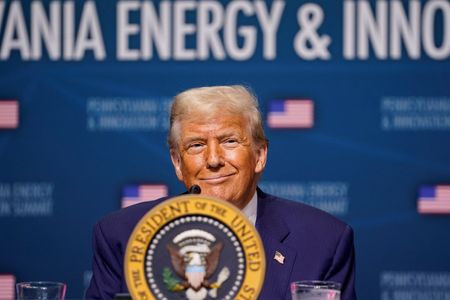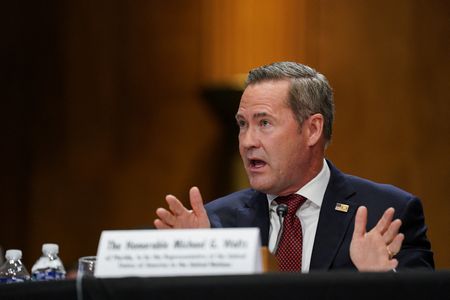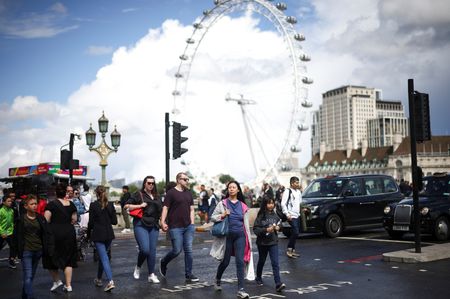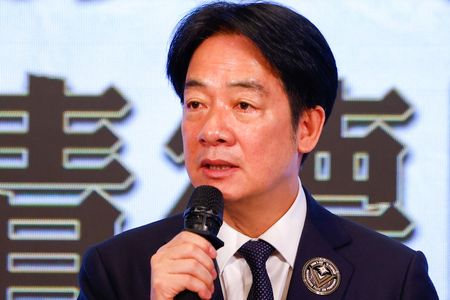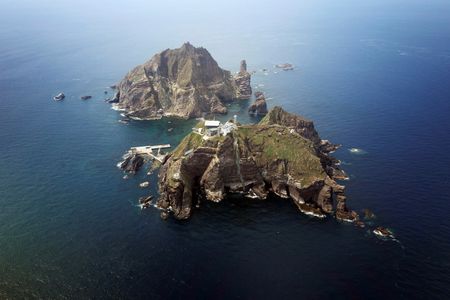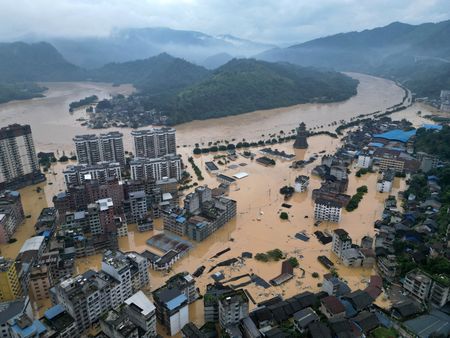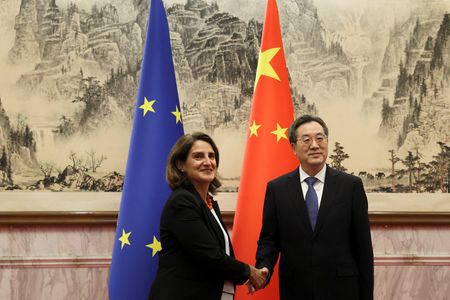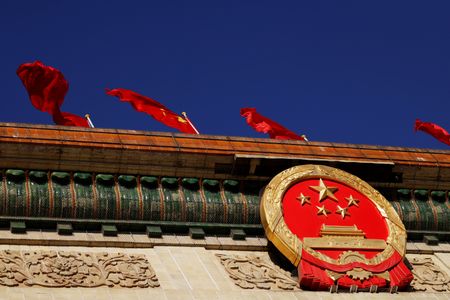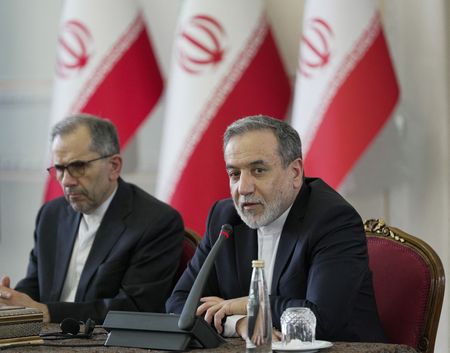By Lewis Jackson and Kirsty Needham
BEIJING/SYDNEY (Reuters) -China and Australia will keep open dialogue and look for areas of cooperation despite strategic competition in the Indo-Pacific region, Australia’s Prime Minister Anthony Albanese said on Tuesday after meeting China’s President Xi Jinping in Beijing.
Australia, which regards the United States as its major security ally, has pursued a China policy of “cooperate where we can, disagree where we must” under Albanese, mending ties that had been strained near to breaking point under a previous government.
Albanese’s six-day, three-city visit is a major test case for Beijing’s attempts to capitalise on U.S. President Donald Trump’s sweeping trade tariffs by presenting itself as a stable and reliable partner.
Xi called on both countries to safeguard free trade in a readout of his meeting with Albanese published by state media that did not mention Trump but referred to a “complex and turbulent” international system.
While Albanese repeatedly voiced his support for free trade and more dialogue with China, a day of senior meetings that also included Premier Li Qiang and business executives from both countries ended without any new major investment or trade deals.
“Dialogue is how we advance our interests, how we manage our differences and we guard against misunderstanding,” Albanese said at a press conference.
Australia would treat its trade relationship with China separately to its handling of U.S. tariffs, Albanese told reporters, speaking after a private lunch with Xi at the Great Hall of the People.
Albanese also said a decade-old free trade agreement with China, Australia’s largest trade partner, would be reviewed.
The two countries agreed to a new Policy Dialogue on Steel Decarbonisation that will give Australia insight into Chinese government planning, according to an Australian government statement.
They also signed agreements on tourism, customs inspections, and agriculture, the statement said.
LIMITS TO COOPERATION
In the run-up to the visit, China signalled repeatedly it was open to deeper cooperation. The state-owned China Daily newspaper on Tuesday published a glowing opinion piece about the visit and said it showed countries with different political systems could still cooperate.
However, any cooperation is likely to be constrained by long-standing Australian concerns around China’s military build-up. Albanese said he had raised the case of jailed Australian writer Yang Hengjun with Xi.
Albanese said he raised Australia’s concerns over the Chinese navy’s conduct of short-notice live-fire exercises in the Tasman Sea between Australia and New Zealand in February.
Xi responded that China “engages in exercises just as Australia engages in exercises”, Albanese told reporters.
“We have strategic competition in the region but we continue to engage in order to support peace and security in the region and stability,” he said.
Beijing has also previously criticised Canberra’s increased screening of foreign investment in critical minerals and Albanese’s pledge to return a Chinese-leased port to Australian ownership.
TRADE AND INVESTMENT
Australia’s exports to China span agriculture and energy but are dominated by iron ore, and Albanese has travelled with executives from mining giants Rio Tinto, BHP and Fortescue, who met Chinese steel industry officials on Monday, at the start of the visit.
A separate CEO roundtable on Tuesday issued recommendations for both governments including modernising the 10-year-old free trade agreement and finding ways to collaborate on green metal research and development.
Some two dozen Chinese and Australian companies, including China’s electric vehicle giant BYD, steelmaker Baowu and food group COFCO, attended the meeting alongside Li and Albanese.
“First and foremost we use fixtures such as this to send a signal that business-to-business engagement should be welcomed and encouraged,” Bran Black, CEO of the Business Council of Australia, told Reuters on Tuesday.
(Reporting by Lewis Jackson and Zhang Yukun in Beijing; additional reporting by Kirsty Needham and Alasdair Pal in Sydney; Writing by Kirsty Needham; Editing by Stephen Coates, Kate Mayberry and Michael Perry)

